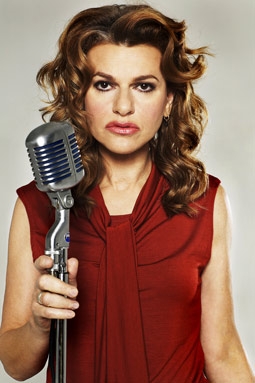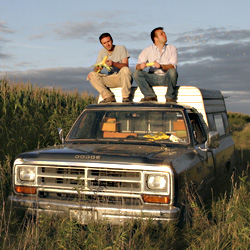For an actor performing in outdoor theater, putting on your makeup means applying sunscreen and bug spray. I usually start with a solid SPF 30 an hour before the show, reapplying offstage as needed. Running around in the unpredictable Seattle summer heat wearing layers of medieval clothing may be a sweaty and exhausting endeavor, but a sunburn on top of that would be sheer misery.
At my first June rehearsal for Theater Schmeater’s production of Robin Hood at Capitol Hill’s Volunteer Park, I had little idea of the adventures ahead. My stage experience to date had consisted of high-school shows and training at Seattle Children’s Theatre and in college. As a 6-foot-3-inch actor in high school, I was typically cast as the grumpy old man or someone’s father. In Robin Hood, I was gratified to be asked to play someone my own age—overeager good guy Billy Tyler— plus several other small roles. But my training scarcely prepared me for the challenges to come.
Every performance of the show begins with the cast and crew sweeping the stage area for dog poop, broken glass, or anything else that would be gross or dangerous to fall on. Robin Hood has many intricate sword fights, and many characters are punched, stabbed, or thrown to the ground. For the sake of our rented costumes and personal safety, the grass must be clear.
Next, it’s time to clean our backstage areas. Performing in Volunteer Park’s prime public-sex and drug-use spots means you never know what will be left behind to remove before a show. The cast has seen everything from the usual discarded condoms, lubricant, and beer bottles to more puzzling items like tiny ginseng extract bottles and children’s picture books.
Finally it’s show time, and the real fun begins. While indoor theater actors must compete with rude patrons who arrive late or don’t turn off their cell phones, outdoor theater actors must compete with the world around them. This includes airplanes flying overhead, incessant ice-cream trucks, and men cruising the park with blaring techno music.
An outdoor actor has to make the plight of his character more interesting than the cute puppy that just ran across the stage. He must grab focus from passersby who refuse to acknowledge the backstage “Performance in Progress—Do Not Enter” signs.
But as the cast and our audience saw on opening night, sometimes you just can’t control what happens at the park. Only 10 minutes before the start of our first performance, the park’s automatic sprinklers started, spraying our entire stage area and the audience. The grass was now too slippery to safely fight on, jeopardizing a large portion of the show.
The cast regrouped with our director, and attempted to quickly restage the show in an adjacent dry space. The audience moved their seats, and we were about to begin when the sprinklers again raised their ugly black heads. Our costumes and props were soaked. For safety reasons, the show could not go on.
But then the most magical thing happened. Audience members ran backstage through the water, helping us move everything out of harm’s way. I guess if people are willing to sit in the direct sun for 90 minutes to watch a show, they really want to see you succeed. We eventually discovered that the sprinklers were a Parks Department snafu. The next day’s performance went off without a hitch, and was met with great approval by the audience, many of whom returned after being sprayed the day before.
In the final act where Robin Hood must solicit donations from the audience to save King Richard, the response was humbling. Person after person approached Robin to give money to the point where his hat could no longer hold it all. For everyone involved in the production, it was the greatest validation possible. We had succeeded in telling our story despite the unpredictability of the park, the weather, and the activity around us. I couldn’t help but smile.
And then I took out my sunscreen. It was time to reapply.







